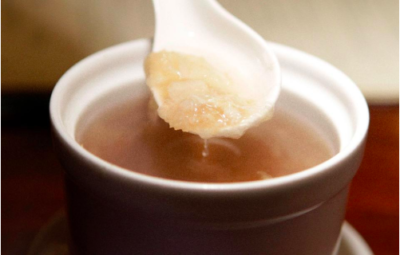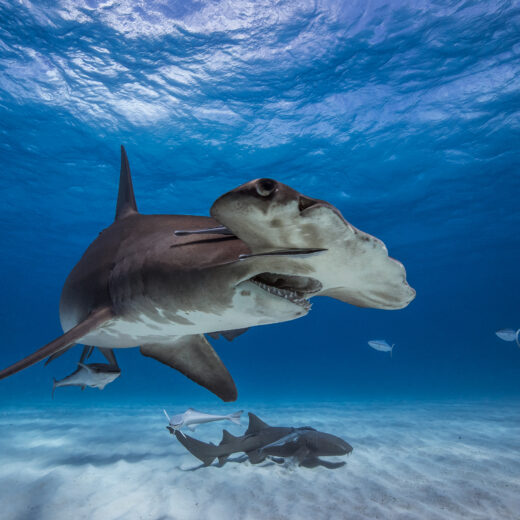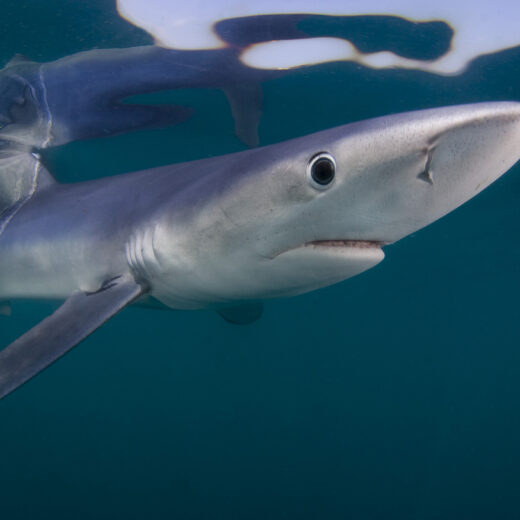
ASSOCIATED PRESS


By Leslie Wu
Although the practice of shark finning (where the fin is cut off and the animal thrown back into the water) has been banned in Canada for the past 15 years, the import of the item has still been permitted. Statistics Canada reports this number as 148,0000 kg of shark fin imported in 2018 alone — valued at $3.2 million CAD.
Bill S-238, an act to amend the Fisheries Act and the Wild Animal and Plant Protection and Regulation of International and Interprovincial Trade Act, was passed in June, although it was not the first attempt at the banning of shark fin import. Over the years, the ingredient has been banned at a municipal level across Canada in 19 cities including Vancouver and Mississauga (both home to a large Asian population and number of restaurants), although an attempt at a ban in Toronto was overturned at the provincial level as an overstep of council’s power in 2011. Private member bills proposing a federal ban have been overturned five times since then.
“Shark finning is an unquestionably destructive practice, which is contributing to the global decline of sharks and posing an ongoing threat to ocean ecosystems,” said Jonathan Wilkinson, Minister of Fisheries, Oceans and the Canadian Coast Guard, in a release about the new ban. “The new actions are a clear example of Canadian leadership on the conservation of our ocean environment. The Government of Canada, in partnership with the environmental community, is stepping up and doing our part to ensure long term ocean sustainability.” Wilkinson made the announcement standing in front of a shark mural dedicated to filmmaker Rob Stewart, whose Sharkwater documentaries were cited as instrumental in raising awareness of shark finning.
Although shark fin is most commonly associated with Chinese restaurants, the ingredient is also imported by Japan, Malaysia, Thailand and Spain, according to The Food And Agriculture Organization of the United Nations. Celebrities such as NBA star Yao Ming have lent their names and likeness to publicly protest the use of shark fin, and sales of the ingredient are reportedly down throughout Hong Kong and China.


ASSOCIATED PRESS
“While consumers in mainland China have changed their behavior in response to awareness campaigns and a government banquet ban, shark fin soup remains on the menu in Hong Kong and Taiwan, and consumption is growing in places like Thailand, Vietnam, Indonesia and Macau,” said advocacy group WildAid’s chief executive Peter Knights to The Washington Post in 2018.
Although the debates worldwide are ongoing, the real power to end the use of shark fin as an ingredient may lie outside of the halls of government. The discussions around shark fin have echoed the ones over foie gras in recent years, bringing chefs and consumers to the table to consider the role of diners in ethical eating practices. Similar to foie, shark fin is known as a luxury ingredient with a price tag that makes it an item restricted to moneyed celebrations. With new generations eschewing these trappings of consumption, and increasing alternatives being manufactured in labs (such as the The Faux Fin by the Alpha Food Lab grown by “cellular architecture” using algae), perhaps it will require diners exercising their purchasing power to further change in an increasingly politicized food industry.
Stay in touch and get the latest WildAid updates.
SIGN UPAbout WildAid
WildAid is a non-profit organization with a mission to protect wildlife from illegal trade and other imminent threats. While most wildlife conservation groups focus on protecting animals from poaching, WildAid primarily works to reduce global consumption of wildlife products such as elephant ivory, rhino horn and shark fin soup. With an unrivaled portfolio of celebrity ambassadors and a global network of media partners, WildAid leverages more than $308 million in annual pro-bono media support with a simple message: When the Buying Stops, the Killing Can Too.
Journalists on deadline may email communications@wildaid.org


